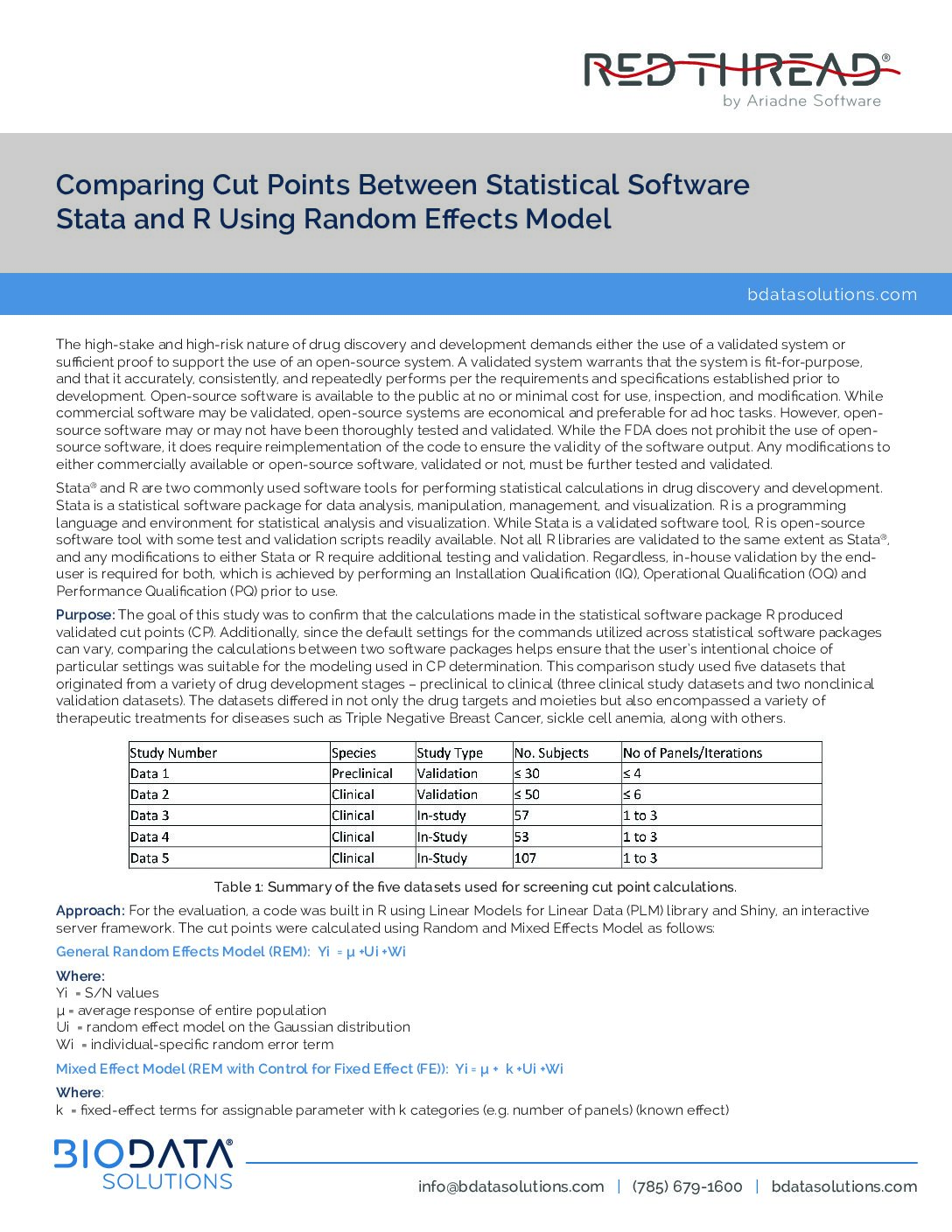
The high-stake and high-risk nature of drug discovery and development demands either the use of a validated system or sufficient proof to support the use of an open-source system. A validated system warrants that the system is fit-for-purpose, and that it accurately, consistently, and repeatedly performs per the requirements and specifications established prior to development. Open-source software is available to the public at no or minimal cost for use, inspection, and modification. While commercial software may be validated, open-source systems are economical and preferable for ad hoc tasks. However, open-source software may or may not have been thoroughly tested and validated. Learn more in this app note.
0




